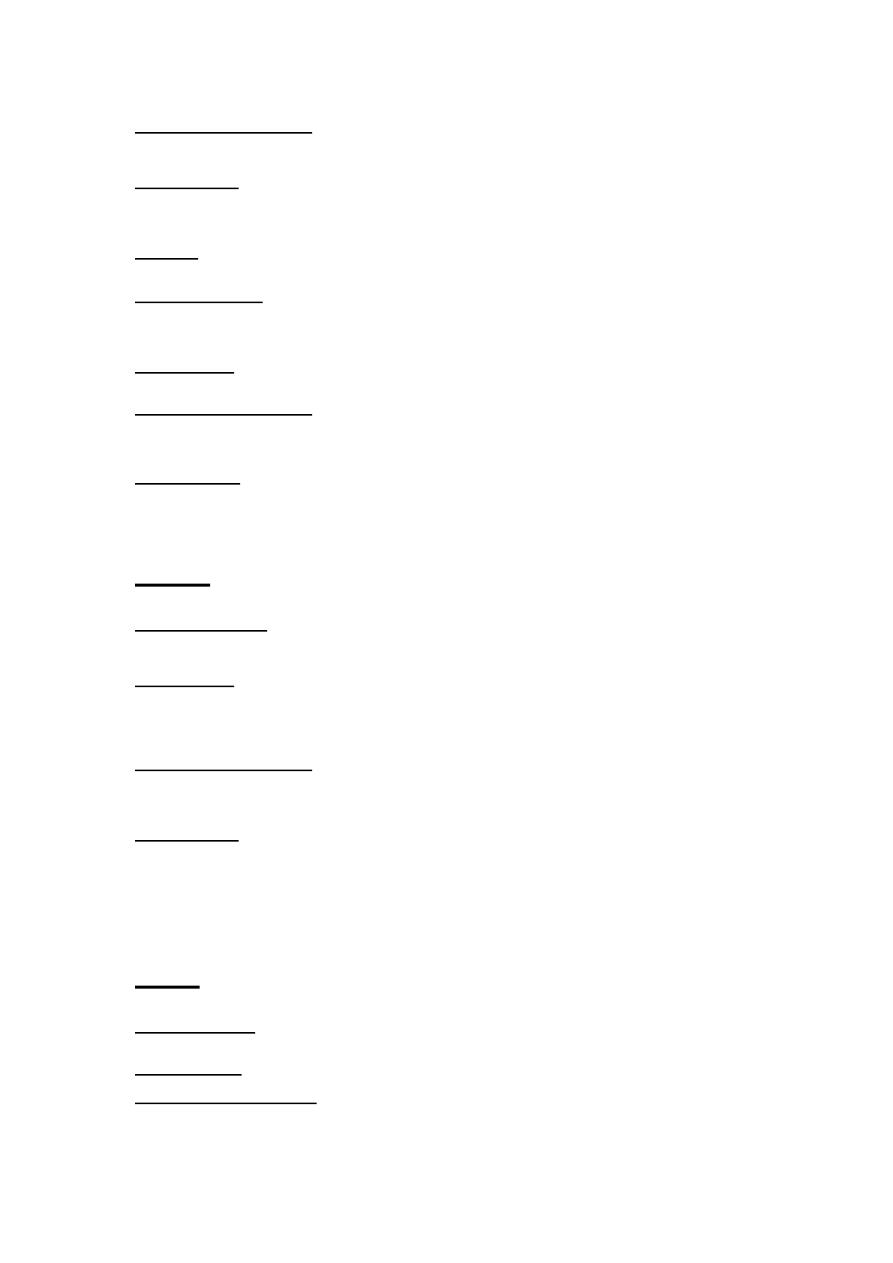
Child developmental milestones
What is child development?
§
Development is the process by which each child evolves from
helpless infancy to independent adulthood.
§
Developmental assessment is the process of mapping a child’s
performance compared with children of similar age.
Developmental assessment is integral part of pediatric examination
and therefore it is essential that normal developmental and normal
variation are clearly understood. In general, assessment is ongoing
through to adolescent but is of more importance during the
preschool children-0-5 years. Thorough physical examination is
essential, particularly looking for minor abnormalities and noting
the size and shape of the head, height and weight.
Examination of assessment is then based on
1-gross motor status
2-vision and fine motor
3-hearing and speech
4-social skills.
• Gross motor: using large group of muscles to Sit, stand, walk, run,
etc.,.
• Fine motor: using hands to be able to eat, draw, dress play, and
write.
• Social: interacting with others
What is developmental delay?
Many clinicians use the term “global developmental delay” to mean a
significant delay in two or more of the four main developmental domains
listed above.
Benefits of developmental assessment
•
Early diagnosis of conditions with a genetic basis, such as Duchene
muscular dystrophy and fragile X syndrome, facilitates genetic
counseling for families

•
Provides cares with reliable information before a developmental problem
becomes obvious and gives them more time to adjust to the child’s
difficulty and make appropriate management plans for their family.
)
Neonatal Period (1st 4 Wk
;
to side
side
Lies in flexed attitude; turns head from
:
Grosse motor
head sags on ventral suspension. Generally flexed and a little stiff.
: May fixate face or light in line of vision;
and fine motor
Visual,
“doll's-eye&” delay movement of eyes on turning of the body.
familiar sound and voices.
toward
is fully mature, may turn
:
Hearing
active; stepping and placing reflexes; grasp
Moro response
:
Reflex
reflex active.
.
Visual preference for human face
Social:
§
8 week
-
4
ead lags on pull to sitting
h
: Legs more extended;
Grosse motor
position, holds chin up in prone position; head lifted momentarily to
plane of body on ventral suspension.
on; follows moving in 90 degree
Watches pers
Visual, fine motor:
object.
beginning to smile
,
listens to voice and coos
:
Social
3months
sitting
d to
head lag partially compensated when pulle
:
Gross motor
position. Ventral suspension head is held up for prolonged period.
,can hold shoulders off table when in prone position.
spontaneously and grasp
the hands
open
:
Vision and fine motor
reflex is gone. Follows moving object in 180 degree.
more responsive to noise and may turn to
:
Hearing and speech
sound, coos and laughs
.
smiles appropriately
:
Social skills
¨
7month
end of
:
8months
-
6
head
Good
back straight.
sits momentarily,
=
Gross motor
in both directions (front to back, back to front)
over
control, rolls

.
bounce
When standing, supports weight on legs and might
alert, eyes move in all
objects,
transfers
:
vision
Fine motor and
directions, fixates on small objects-20 cm
.
chains of
babbling
,
turns to sounds 0.5m
:
speech
Hearing and
consonants -Ka, dah.
to hold
mouthing, tries
shows like and dislikes,
:
Social skills
bottle, response to tickling.
Warnings
¨
Poor head control
¨
Brisk reflexes and clonus
¨
Not alert
¨
Not Turing to sounds
¨
Persistent primitive reflexes.
10months
-
9
Gross motors: pull to stand, sits alone and can turn to look (pivoting),
crawling, does not like being moved from sitting to lying supine
,
walks
holding furniture (“cruising”).
Fine motor and vision : pincer grasp, can see small objects at 3m
¨
Makes a lot of different
,
sounds
imitate
=
Hearing and speech
test hearing at 1 m
,
sounds like “mamamama” and “bababababa”
(distraction test).
Social skills =hold, bites, chews biscuit, can wave bye, beginning of
suspicion of strangers, Plays peek-a-boo.
¨
Warnings
¨
Not sitting
¨
Asymmetry of tone
¨
Poor response to sounds
12 months
.
with one hand held
, walk
alone
May stand
:
Gross motors
release an object on command
:
Fine motor

2 meaningful words
-
1
:
Hearing and speech
, casting object, mouthing stop.
called
come when
:
Social skills
¨
15 month
.
and unable to get down
walk alone, crawled upstairs
:
Gross motor
.
line
s a
, make
Makes tower of 3 cubes
:
Vision and fine motor
jargon, flow simple command
Hearing and speech:
Indicates
.
names of some familiar object (ball)
y
a
m
:
skills
Social
some desires or needs by pointing, hug parent.
18 months
§
, run
and creep down
walks upstairs with assistance
:
motors
Gross
stiffly, sit on small chair.
§
, point to distant
without falling
feeds from spoon
:
Fine motor
objects, stack 2 blocks, Makes tower of 4 cubes; imitates
scribbling; imitates vertical stroke, turn pages in a book
§
at least 10 words, vocalize freely, responds
:
Hearing and speech
quickly to simple commands, name picture, identify one or more
parts of body.
§
,
(domestic mimicry)
others
mimic the actions of
Social skills
stopped putting toys into mouth, kiss parent, complain when wet,
, May have temper tantrums.
seek help in trouble
§
Warning
§
Not standing
Not walking
Poor attention span
24 months
, goes up and down stairs
well, climb on furniture
runs
:
Gross motors
two feet/step , kicks a ball without falling.
¨
builds tower of 7blocks, imitate horizontal line,
:
Fine motor

¨
3 word sentences, put 3 words together
-
2
:
Hearing and speech
(subject, verb, object)
, help to undress, hold
other children
beside
ays
pl
:
Social skills
spoon well.
¨
3 years
¨
Can walk upstairs, one foot per step, able to jump,
Gross motors:
stands on one foot momentarily ,may able to ride tricycle
.
cross
, imitates
circle
Builds tower of10 blocks, draw a
:
Fine motor
¨
nt to
may know one to two colors, cou
:
Hearing and speech
10,know age ,sex, and first name
Social skills: plays simple games in parallel with others children,
¨
Separates easily from parents, wash hand, objects to major changes
in routine.
4years
¨
, can walk
up to 5 seconds
Hop on one foot
:
Gross motors
downstairs in adult fashion, climb well.
4 part of
-
, draw man with 2
draw square and Cross
:
motor
Fine
body beside the head, with left or right hand dominant, use
scissors.
-
asks question
lot,
a
, Talks
4 colors
-
know 3
:
speech
Hearing and
tell stories, Can say first and last name.
¨
play with several
established,
toilet training well
:
skills
Social
children with interaction.
¨
Note: The rate of development may vary between children, the
sequence of development does not differ significantly
r
5yea
¨
, walk heel to toe.
may be able to skip
:
Gross motors
¨
iangle, draws person with body.
tr
copies
motor:
Fine
, say
5 colors, repeat sentence of 10 syllables
:
Hearing and speech

address
.
dress and undress
ence ,
shows more independ
:
Social skills
Developmental decision
Normal
Probably normal-see again
Doubtful-see soon
refer for diagnosis and treatment
-
Abnormal
Locomotion variants:
¨
some infant never crawl ,they stand and walk
¨
Some do normal crawl with flexed knees
¨
Some do bear walk knees extended)
¨
Some commando crawl-on elbows rather than hands
